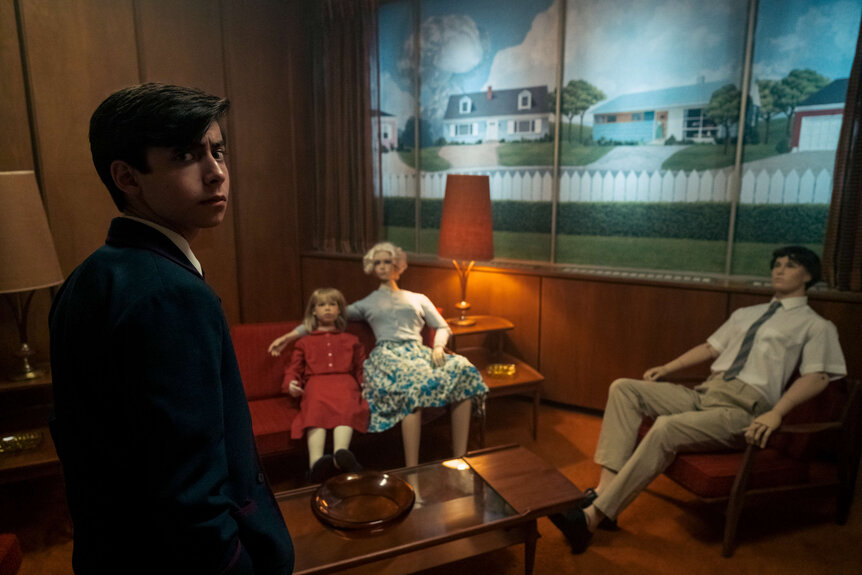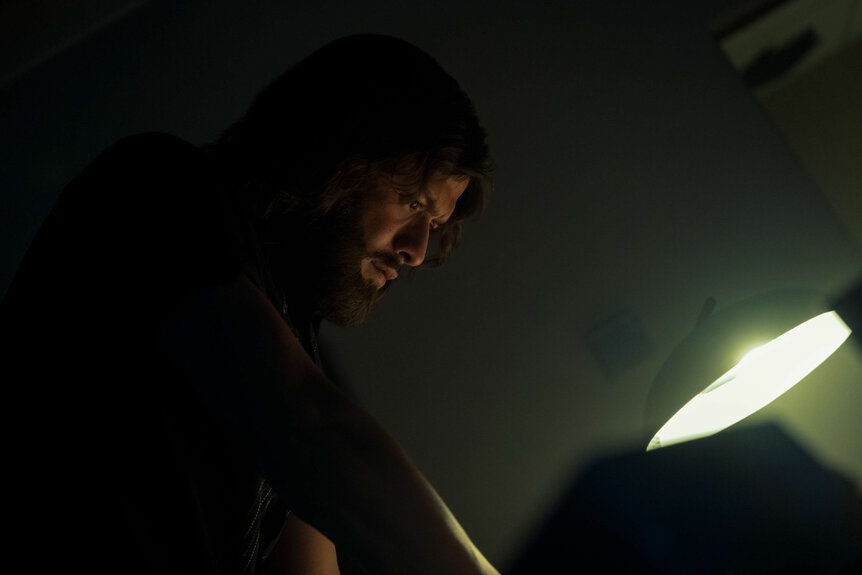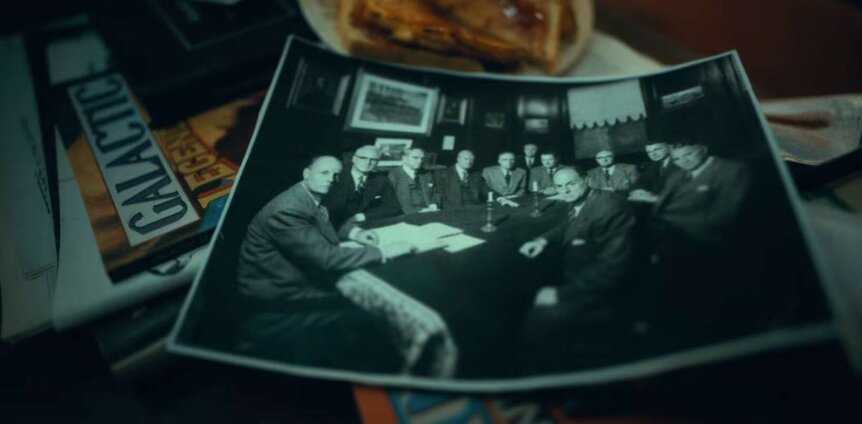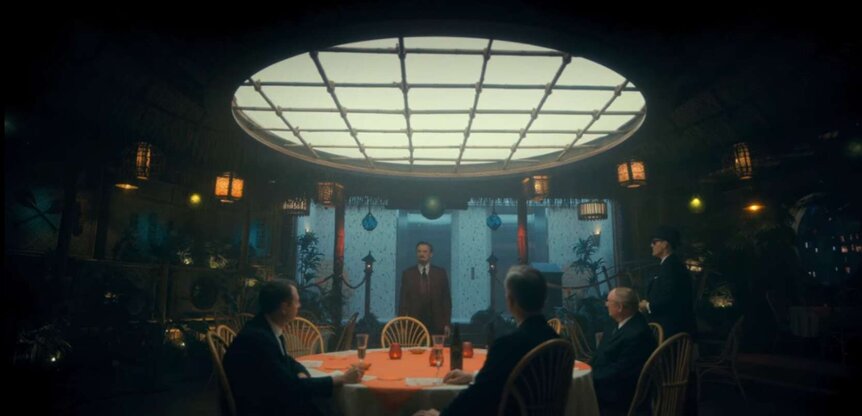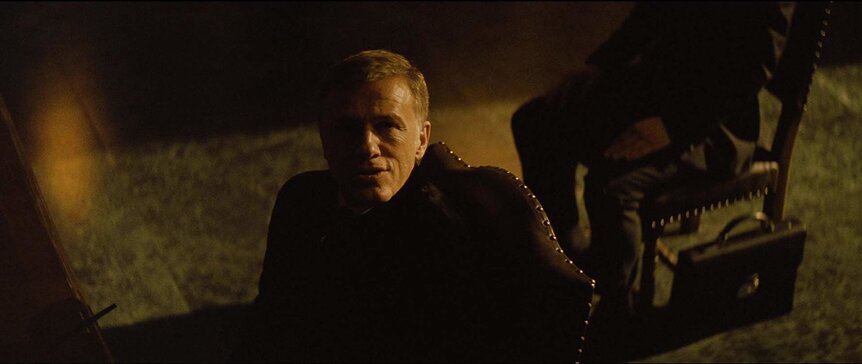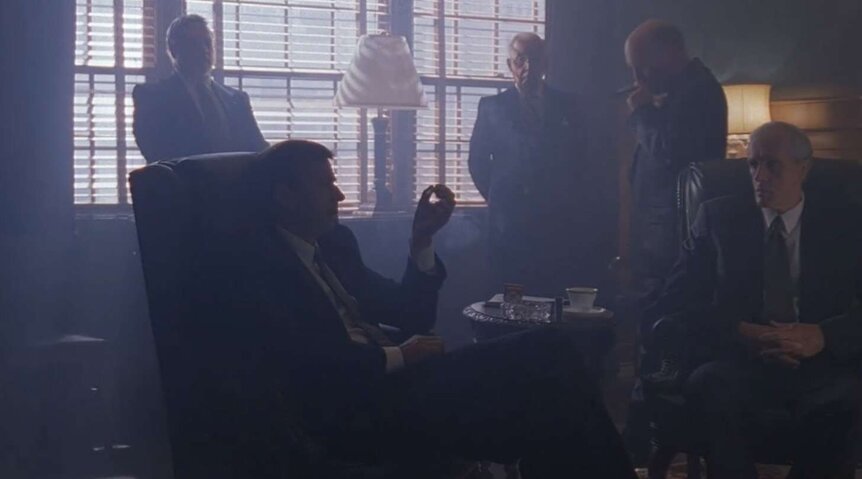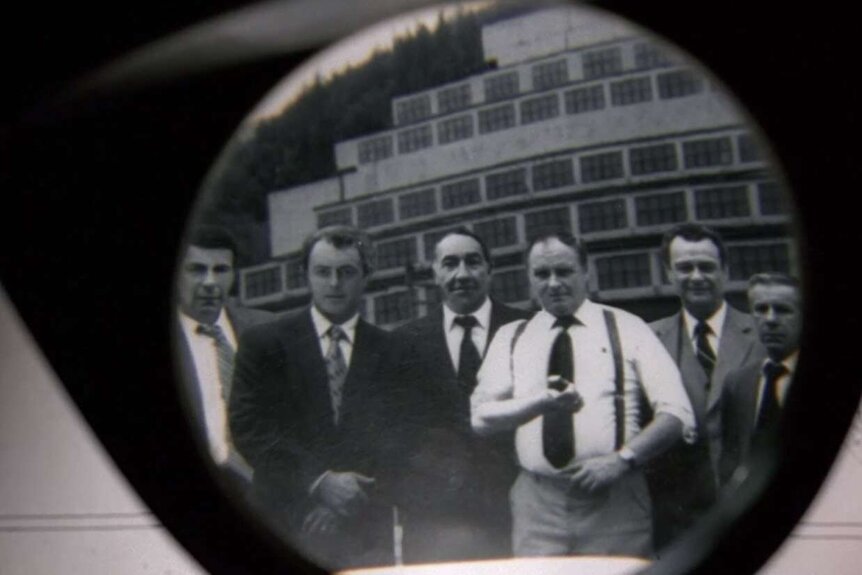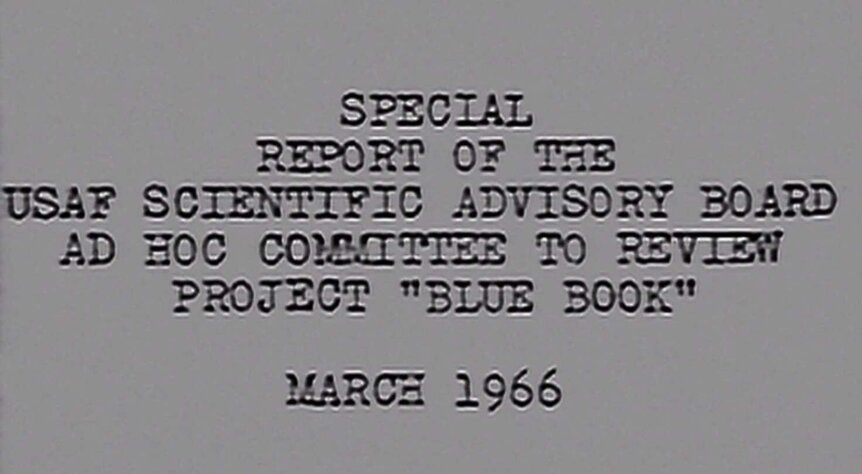Create a free profile to get unlimited access to exclusive videos, sweepstakes, and more!
The Umbrella Academy mixes fact with fiction in its depiction of The Majestic 12
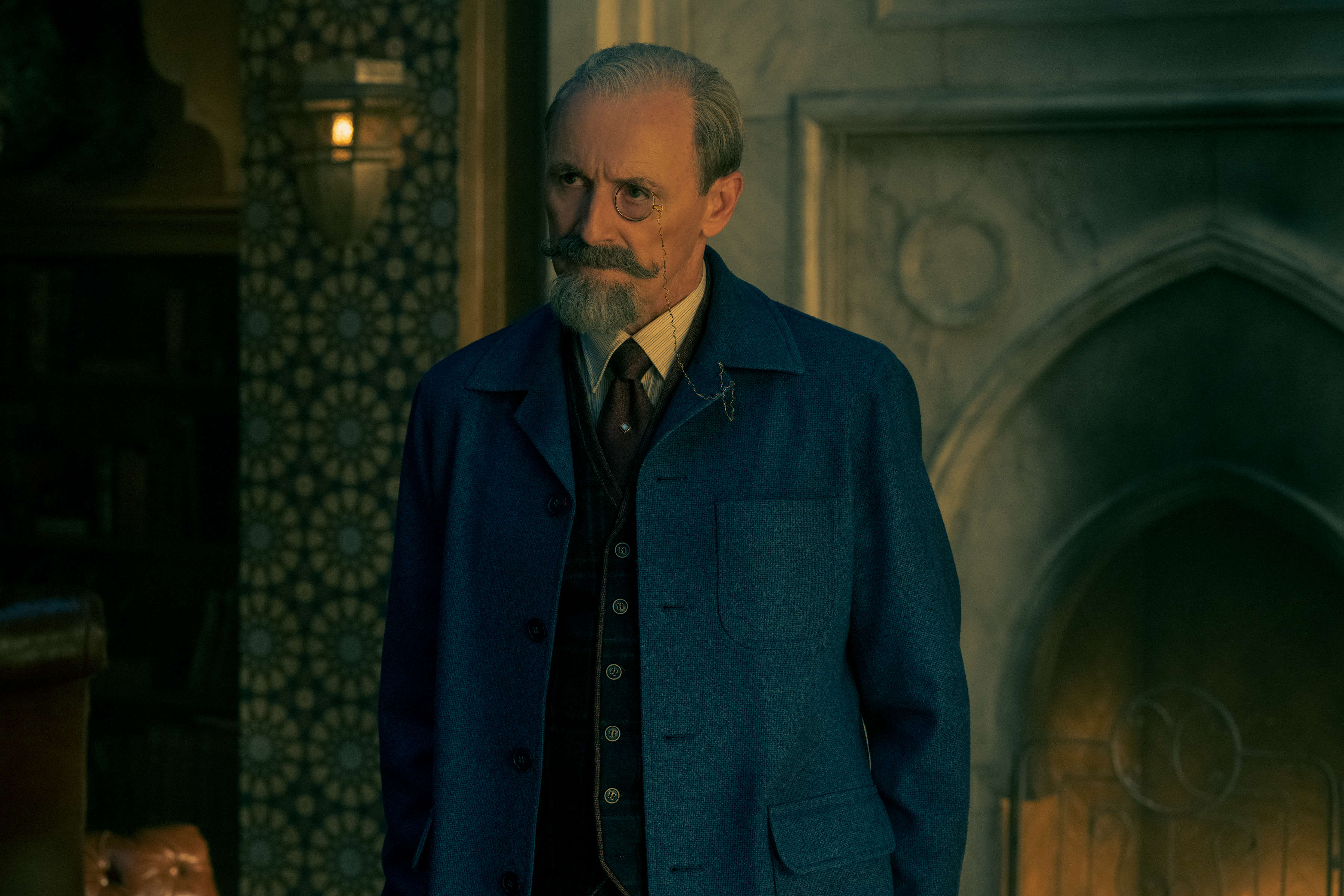
Science fiction thrived during the Cold War, aided by atomic bomb anxiety, the space race, and new covert organizations created to "protect" from the enemy. Clandestine initiatives blossomed, which saw the Central Intelligence Group morph into the still-active Central Intelligence Agency at the end of 1947. In the summer of that same year, alien conspiracy theories ignited — and persist to this very day — after the supposed UFO crash in Roswell, New Mexico.
Post-World War II victory buoyancy turned into paranoia after the Soviet Union went from cautious ally to an enemy within a short window, and ethically questionable actions were sanctioned in the name of defense. Approximately 1,600 German scientists (and their families) were brought over to the U.S. to help beat the Russians to the moon and work on the development of weapons as part of the controversial Operation Paperclip — including Nazi party members and SS officers. Additionally, military operations and projects with names like Twinkle, Sign, and Grudge investigated UFOs in the late '40s and early '50s. It is no wonder film and television writers continue to take so much inspiration from events that are stranger than fiction.
Spoilers for The Umbrella Academy Season 2 ahead.
The second season of The Umbrella Academy takes place in Dallas, 1963 after Number Five (Aidan Gallagher) accidentally sends his siblings back in time. While the JFK assassination provides the backdrop for the Doomsday events, it is less about saving the president (unless you're Diego) and more about stopping the world-ending atomic event. Part of the overall plan involves finding out what their adopted father Reginald Hargreaves (Colm Feore) is doing in this part of the country at this pivotal historical moment. The group is aided by conspiracy theorists Elliott Gussman (Kevin Rankin), who witnessed each arrival of the siblings in the alley behind the television store he owns — he thought they were aliens. Providing useful exposition, he is the first person to utter the phrase "Majestic 12." A shadow government that President Kennedy was trying to push "into the light."
Similarly to how this series took the image of a real umbrella man on the grassy knoll and turned this figure into Hargreaves (or so his children thought), the Majestic 12 (or MJ-12) is an alleged syndicate of 12 scientists, high-ranking military operatives, and government agents with access to significant resources. Rather than come up with a new name (as other shows and movies have done in the past), The Umbrella Academy not only keeps the original moniker but names an episode after the alleged group. Officially debunked in the late '80s after documents purporting to be from the 1950s were deemed "clumsy counterfeits," it hasn't stopped the Majestic 12 from featuring in some capacity in stories requiring a shady secret government group. With an already perfect ready-made name that resembles a villainous organization from a 1960s spy caper, why bother picking something new?
Elliott explains to the Five, Diego (David Castañeda), and Lila (Ritu Arya) who the Majestic 12 are after they mention an event being hosted by one of the alleged members, Hoyt Hillenkoetter. Or rather, in this world, this name is a combination of two of the supposed Majestic 12. It should be noted that The Umbrella Academy is also fudging the timeline somewhat with Elliott's knowledge, because these rumors didn't kick in until the 1980s.
Roscoe H. Hillenkoetter was the first director of the CIA, and Hoyt Vandenberg was the Chief of Staff for the Air Force. Referring to the "secret committee," Elliott's observation that Kennedy is trying to make them more public-facing gives them a motive for the Byzantinian plan to assassinate the commander-in-chief. Weaving historical events we know happened (the assassination) with factors that have been long rumored (a shadow government) is why this period continues to exert creative influence. There's no concrete proof that the Majestic 12 existed, but it has so many plausible elements amid the outlandish.
Elliott happens to have a photograph of the men believed to be in this cabal, but it is one person shy of the magic dozen. Of course, this is where Reginald Hargreaves fits into the puzzle. Why secret organizations find the need to pose for a group photograph yearbook-style when they are meant to be keeping it on the down-low is unclear. Arrogance might explain this lapse in judgment, and while Reginald avoids the camera he still leaves plenty of incriminating evidence around his office to be found. He is the one member of the group against killing Kennedy and refuses to join the celebratory champagne reception.
This endeavor is fueled by the moon race — like many nefarious projects at this time — but he won't let his technology be used by men who blackmail him. Diego refers to this group as "lizard people" in "A Light Supper," but the penultimate episode reveals his adopted father is hiding his true face beneath a human mask. Disbanded not through choice, but through this collective demise, Reginald proves he does not require a syndicate to enact his plan.
A restaurant provides the secret location hangout, but these scenes often take place in the haven of a gentleman's club where whiskey can be drunk and smoking is permitted. Sometimes cigarettes denote the period, sometimes they are a visual cue that a character is evil (often it is both). It is a common trope that can be found throughout entertainment with a clandestine angle.
SPECTRE, the Syndicate, and the Alliance of Twelve are all nefarious fictional organizations that control the fate of the world from James Bond to Alias. James Bond author (and former spy) Ian Fleming introduced SPECTRE (an acronym for Special Executive for Counter-intelligence, Terrorism, Revenge, and Extortion) in 1961 in the Thunderball novel; a year later the evil group made its cinematic debut in Dr. No. Headed by the cat-loving criminal mastermind Ernst Stavro Blofeld, Fleming used his World War II and covert experience to issue a warning regarding the Nazi war criminals who still roamed free in the world.
This syndicate resurfaced in the 2015 James Bond movie of the same name, which will see the return of Christoph Waltz's depiction of Blofeld when the rescheduled No Time to Die hits theaters.
In Alias, Sydney Bristow (Jennifer Garner) believed she was working for a CIA black ops division called SD-6, but in reality, she was an agent operating for the enemy she thought she was fighting. Global crime syndicate the Alliance of Twelve has field offices across the world, including the Los Angeles-based SD-6. Founded by former CIA agent Alain Christophe (Joseph Ruskin), he was joined by 11 other intelligence operatives and those with vested interests after the Cold War came to an end. Trading in weapons, military technology, and government secrets ensured this group retained a dominant grip across all avenues. Power-hungry men acting outside the lines will never go out of style in espionage.
Fans of The X-Files will recognize elements of the Majestic 12 in the group Cigarette Smoking Man (William B. Davis) is part of. Going by the less fanciful-sounding Syndicate, these men pull the strings that often hamper Mulder (David Duchovny) and Scully's (Gillian Anderson) investigations. As with The Umbrella Academy, many of these narrative plot points are rooted in real cases and post-World War II conspiracies. It can be hard to separate the fact from fiction, which is part of the appeal for both the audience and storytellers — probably less appealing for actual government agencies.
Tension in The X-Files exists between truths and hoaxes laid out at Mulder's feet. Before the mythology arc became a convoluted mess, the earlier seasons use secret programs like Operation Paperclip — that Mulder succinctly calls "our deal with the devil" — to the narrative benefit of the series. A smoky room of shady white dudes sitting in high-back chairs became a familiar sight, sometimes attempting to enact assassination plots against each other (seriously, trust no one). Again, these men take group photographs as if they are thirsty for attention when they should leave no trace.
The Majestic 12 gets name-checked in the Season 5 premiere, "Redux," along with Project Blue Book and Grudge. Mulder (and the viewer) gets a quick history lesson from Michael Kritschgau (John Finn) regarding the "50-year public relations battle" the government has been entangled in.
He cites the Cold War and atomic anxiety as reasons to "fan the flames of what were being called flying saucer stories" to cover up the warplane and experimental technology reality. "These are the truths that can kill a nation," he intones while archival footage of survivors from Hiroshima and Nagasaki pepper the monologue along with shots of flying crafts and top-secret files — including the image below.
It is a neat explainer of the conflict between truth and rumor, which The X-Files is built on. Referring to Roswell as "a made-to-order cover story for generals looking to develop the national war chest," this episode provides a plausible answer behind the fantastic.
"Man's greatest flaw: the illusion of control," Reginald observes in "A Light Supper" when discussing Five's desire to stop the forthcoming nuclear apocalypse in The Umbrella Academy. This sentiment also sums up why storytellers and the public are so enamored by the idea of syndicates acting as puppetmasters. We don't necessarily like to think those we voted in are capable of such heinous acts, but outsourcing these actions or even being under the thumb of a powerful collective is far more palatable.
The combination of atomic weapons, technological improvements, and the Cold War was a perfect melting pot for this now-familiar image of a group that exists and acts with impunity. Not even a president can stand in the way of their agenda. The Cold War might long be over, but The Umbrella Academy, Alias, The X-Files, and James Bond prove that you don't need to travel back in time for the invisible hand to exert its influence on television and film.
